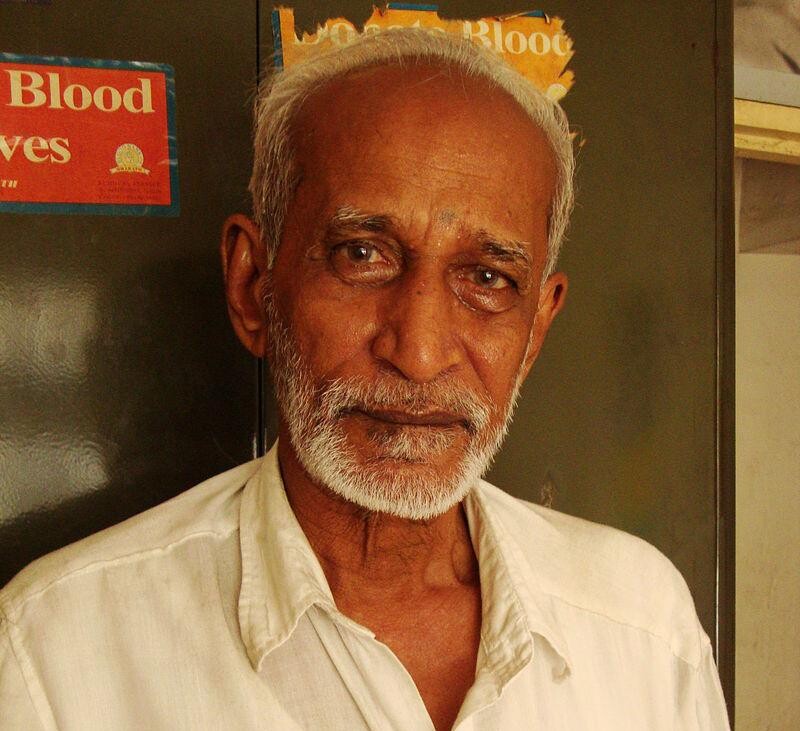“One can get money in three possible ways. First, through earnings; secondly, through parents’ earnings, and thirdly, through money donated by someone. But there’s nothing more fulfilling than being able to donate money for charity out of your own earnings.”
If you’re having a rough day or the news is reporting nothing but disaster and chaos, it’s easy to think that the world is full of bad guys. But, once in a while someone will come out of nowhere who give us some hope, renews our faith in humanity and helps us realise that not everything is lost.
One such person is Palam Kalyanasundaram. Thin, frail, emaciated and sporting a shy smile, he looks like your next-door neighbour’s old, but affectionate grandpa. Once you get to talk to him, the fire and determination in him shines forth through his words. He speaks in a childlike manner, and his voice, too, is awkwardly high-pitched, but as you listen, you are awestruck at the matchless service he has done for humanity.
Born in August 1943 in the Tirunelveli district of Tamil Nadu, Kalyanasundaram studied Tamil at St Xavier’s College. While an undergraduate at Madras University, Kalyanasundaram started the International Children’s Welfare Organisation to help slum children. This was his initiation into social service. His resolve was strengthened in 1962. At the height of the Indo-China war, he made it to the columns of local newspapers when he donated his gold chain to the National Defence Fund.
Kalyanasundaram began by apportioning his salary as a college librarian: 40 Rupees for personal expenses, 100 Rupees for children’s welfare. At one point, after about 5 years, he decided to donate his entire salary and met his daily needs doing odd jobs. The anonymous good Samaritan worked thus for 27 years. Even after retirement, he worked as a waiter in a hotel in exchange for two meals a day and a meagre salary so that he could continue to donate to orphanages and to children’s educational funds. He is among the first person in the world to have donated his entire salary to the needy.
He now runs an organization ‘Paalam’ that serves as a bridge between donors and beneficiaries: it collects money and materials from those willing to donate and distributes them among the weaker sections. Children are helped in pursuing education; medical attention is provided to the needy, blood donation camps are organised and blood samples are transported to hospitals during emergencies. The unemployed, elderly, sick and handicapped are rehabilitated, and free counselling is provided.
He was amply recognised for his service to humanity. The Union government acclaimed him as the best librarian in India. The International Biographical Centre, Cambridge, has honoured him as one of the ‘noblest of the world’ and the United Nations adjudged him as one of the most outstanding people of the 20th century. He also received Man of the Millenium award from an American organisation and Life Time of Service Award from Rotary Club of India in 2011. He donated all the prize money from these awards to charity.
“People think that I started doing charity when I was young by donating clothes and helping people study, and they attribute it to a public cause, but I insist it was for a private one. The place where I lived was a tiny village with no provision for roads, buses, schools, electricity, and there was not even a shop to buy a matchbox from. I had to walk 10km to school and back and walking all that way alone can be a pretty lonesome experience. Hence, I had this thought that if I could motivate most of the children to come with me to school; it would be great fun as well. In those days, children could not afford to pay school fees which were around 5 Rupees (around 6p). I offered to pay their school fees, got them books and clothes as well.”
This level of selfless sacrifice and kindness is rare to find in our world today and is a precious asset to the world.
